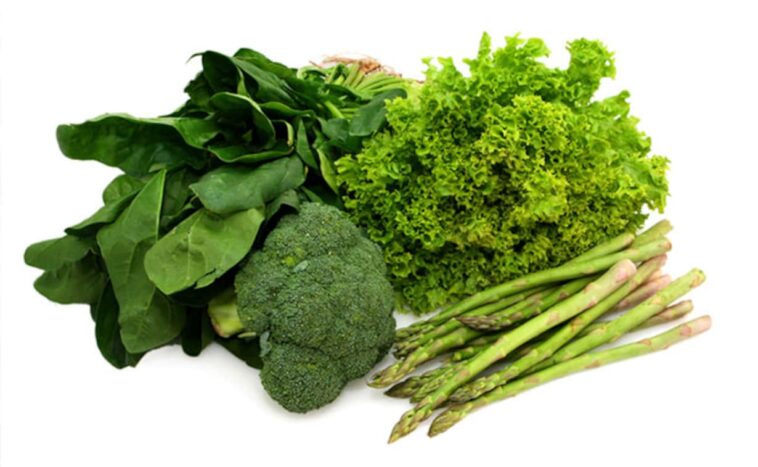The nutritional superstardom of dark leafy greens like kale, spinach, arugula, and chard cannot be disputed. The benefits of leafy greens for your health are remarkable in ways you would not expect given their low calorie count and high content of fiber, vitamins, and phytonutrients.
Leafy greens have the ability to make you look and feel younger and can even encourage healthy aging, whether you consume them as a complete food, in a smoothie, or as an organic greens powder. Let’s talk about the benefits of leafy greens, what they are, and how you may incorporate them into your diet.
While it’s common knowledge that eating a diet rich in organic, non-GMO produce has health benefits, not all produce is created equal. Fortunately, many popular greens, like spinach, kale, and collard greens, are rich in nutrients. Furthermore, dark leafy greens may be easily introduced into your diet in a variety of exciting and tasty ways.
Let me tell you about all the wonderful benefits of leafy greens, in case you still need persuading.

1. Green Veggies Support Optimal Brain Function
Do you hope to foster thinking and recollection as you grow older? Get some leafy greens in your diet. Researchers showed that those who consumed the most leafy greens on a daily basis also saw the slowest rates of cognitive deterioration.1 The people who consumed the most greens had the cognitive abilities of those 11 years younger. This held true even after taking into account individuals’ respective lifestyles, levels of education, and general states of health.
Folate (B9) is abundant in organically grown veggies. Neurotransmitters (chemicals that send signals from the brain to the rest of the body) are produced more easily in the brain when B vitamins are present. Folate may be found in foods like spinach, broccoli, and lettuce, as well as in citrus fruits like lemons, bananas, and melons.
2. Leafy Greens Reduce Belly Bloating
You may have digestive problems like leaky gut, SIBO, or Candida overgrowth, or it may be because of your diet or a hormone imbalance. I’ll let you in on a little secret I know about reducing gas in the stomach. Leafy green vegetables, of course!
Potassium, an electrolyte and mineral, is abundant in dark green vegetables. The body needs potassium to maintain a healthy fluid balance. A high-sodium diet (typically owing to an overreliance on processed foods) can cause or aggravate bloating, so it’s important to consume enough potassium to keep it in check — around 4,700 milligrams per day, according to the USDA’s Dietary Guidelines.
One cup of boiled spinach has 840 milligrams of potassium, putting you very close to your daily goal..
3. Green Leafy Veggies Make Your Skin Glow
Carrots and other brightly colored vegetables contain a plant pigment called beta-carotene, which our bodies convert into vitamin A. It is also hidden in dark green vegetables.
The changing of the leaves in the fall is one of my favorite parts of the season. As the green chlorophyll in their leaves breaks down, the underlying red, orange, and yellow pigments become more apparent. The wonderful health benefits of leafy greens are due in large part to the brilliant hues they naturally contain.
Beta-carotene can help your skin maintain its young look and shield it from the sun’s damaging rays from the inside out, much like a natural sunscreen would. Research suggests that the body is more able to absorb the beta-carotene in kale after it has been cooked, juiced, or dehydrated.
4. Leafy Greens Relieve Stress
A large green smoothie is an excellent stress-buster and morning meal. The folate in dark leafy greens is a key factor in the creation of endorphins and other feel-good chemicals in the brain and body. The magnesium in dark greens is also beneficial to heart health.
5. Leafy Green Vegetables Support Bone Health
Can you recall the “Got Milk?” commercials? If you drank a glass of milk every day, your bones would be strong, or so the adage goes. However, keep in mind that a sizable percentage of the population has an allergy or intolerance to dairy products from cows.
And studies suggest that drinking milk may actually raise women’s risk of hip fractures rather than decrease it. why’s more proof why dairy should be permanently avoided. Eating enough of leafy greens can help you obtain the calcium you need for strong bones. Vitamin K, which aids in the synthesis of proteins that strengthen bones and coagulate blood, is abundant in green vegetables like broccoli and kale.
6. Leafy Greens Support Healthy Aging
Maintaining a healthy, radiant complexion is a goal shared by everybody. Leafy greens are nature’s youth elixir. Telomeres, the protective caps on our DNA, shrink with age, but eating leafy greens can slow this process.6 When the telomeres of a cell are depleted to zero, the cell dies. In instance, broccoli sprouts aid in maintaining telomere length.
Eating lots of dark leafy greens is good for your skin since they block the sun’s UV rays. Beta-carotene, which is abundant in dark green vegetables, is converted to vitamin A in the body and aids in the diminishment of fine lines and wrinkles, the improvement of skin texture, the elimination of sallowness, and the promotion of healthy cell turnover.
7. Improve Inflammatory Response
The chance of acquiring an autoimmune illness can be greatly diminished by bolstering a normal inflammatory response. Vitamin D, which is abundant in dark green vegetables like spinach, kale, and collards, encourages the development of T-cells, which are responsible for correctly distinguishing between foreign invaders and your own cells.
8. Green Veggies Help Regulate Blood Glucose Levels
Keeping blood sugar levels in check is much easier when you have a portion of greens with every meal. Blood sugar levels can be greatly improved by eating only one more dish of green leafy vegetables per day. Blood sugar can be lowered by eating green vegetables like broccoli and broccoli sprouts. You may also assist maintain healthy blood sugar levels by eating vitamin C-rich leafy greens like spinach and kale.
9. Leafy Greens Support Optimal Gut Health
Dark leafy greens should be a staple in the diet of anyone suffering from leaky gut, food allergies, or autoimmune illness.
Intestinal lining precursor cells are instructed by a recently identified gene called T-bet to become innate lymphoid cells (ILCs) when exposed to cruciferous vegetables like broccoli or brussels sprouts.
The ILCs in greens help maintain a healthy inflammatory response and defend against gastrointestinal illnesses. They help keep your stomach in check and promote a strong immunological response. Additionally, ILCs help keep your gut microbiome’s good bacteria and harmful bacteria in a healthy equilibrium.
Also read: Bad Heart Habits
10. Green Leafy Vegetables Tame the Toxins
The Myers Way® relies heavily on reducing toxic exposure, and this is yet another benefit of leafy greens. Chlorophyll, the pigment that gives plants their green color, is an adept detoxifier. Foods high in the antioxidant chlorophyll, such as spirulina, chlorella, parsley, and alfalfa, remove harmful substances from your bloodstream. Chlorophyll helps the liver produce glutathione, a vitamin that helps the body eliminate toxins naturally.
11. Green Vegetables Boost Digestive Enzymes
Enzymes secreted in the digestive tract aid in the digestion of food and the absorption of its nutrients. Lactase, an enzyme necessary for digesting lactose, a sugar present in cow’s dairy, may be produced less often as you age. A deficiency in digestive enzymes can lead to gas, constipation, reflux, and nutritional deficits.
Enzyme deficiency, inflammation caused by dietary sensitivities, chronic stress, heredity, and age, and leaky gut are all linked. Consuming meals like dark leafy greens can help your body manufacture more digestive enzymes naturally.
12. Leafy Greens Support Your Immune System
This is something I’ve pointed out several times already, but it bears repeating. Supporting your immune system is one of the most promising benefits of leafy greens. Moringa leaf, like other dark leafy greens, helps the body respond normally to the oxidative stress brought on by free radicals, which can cause autoimmunity and cardiovascular disease if not addressed. Broccoli, arugula, and kale have all been singled out in research as plants that promote a healthy immunological response.




